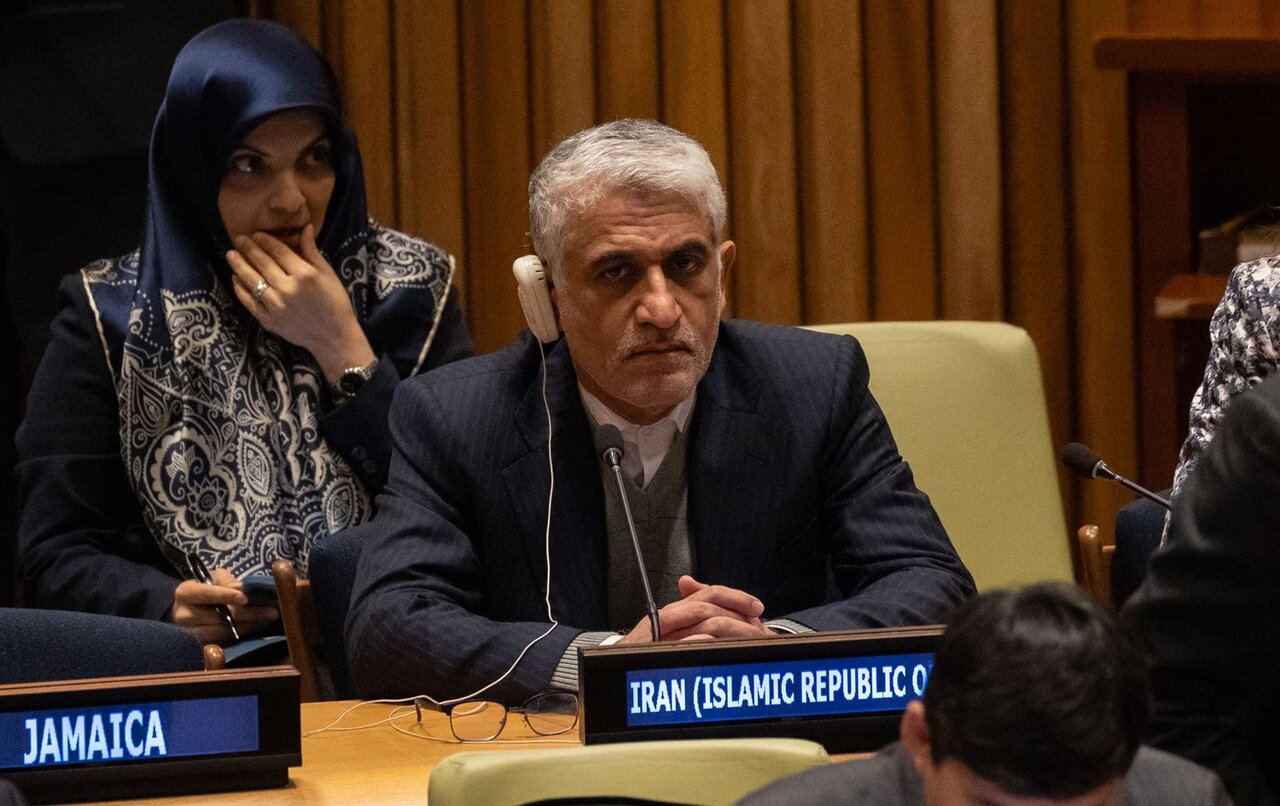Iran calls for global action against Islamophobia

TEHRAN – Amir Saeid Iravani, Iran’s Ambassador to the United Nations, has called on the international community to take action against hatred against Muslims.
Iravani made the remarks during a meeting jointly organized by the United Nations and the Organization of Islamic Cooperation.
He celebrated March 15 as the International Day of Combating Islamophobia and thanked the President of the General Assembly and the Minister of Foreign Affairs of Pakistan (the rotating chairmanship of the Organization of Islamic Cooperation) for convening this meeting.
“Today's meeting shows the serious determination of those present to address the issue of Islamophobia, including hatred, discrimination, terrorist attacks and violence against Muslims and their religious principles, beliefs and rituals,” Iravani said, according to IRNA.
He added, “Currently, the world continues to witness the constant aggression of the Zionist occupation regime against Jerusalem and the Muslim people of occupied Palestine. Also, in some European countries, under the pretext of freedom of speech, the Holy Quran is disrespected.”
Iravani noted, “The time has come for the international community, especially international organizations and countries that claim to protect human rights, to fight against spreading hatred against Muslims, who are a significant part of the world's population.
Iran voices concerns over education ban on Afghan women
Iravani has also expressed concerns over the ban imposed on education for Afghan women and girls in a separate statement to the UN.
In a statement before a UN Security Council Briefing, Iravani said, “Since August 2021, Afghanistan has been grappling with a multitude of challenges. Despite the UN efforts to alleviate the humanitarian crisis, the situation remains dire, with an estimated 28 million people projected to require humanitarian and protection assistance in 2023. Furthermore, the threat of terrorism persists with the presence of Daesh and Al-Qaeda affiliates. In the meantime, recent restrictions and bans imposed on Afghan’s women and girls preventing them from accessing education are deeply concerning. However, we must be cautious of the politicization or exploitation of humanitarian aid for political purposes. Such practices would harm the Afghan people who depend on this aid for their survival.”
He added, “It is also crucial that the release of frozen assets belonging to the Afghan people is expedited and not subject to political conditions. This is critical for restoring the Afghan economy and saving lives. To ensure that the Afghan people receive the support they need, humanitarian aid must remain impartial and unconditional. We must prioritize the well-being of the Afghan people above all else.”
Iravani noted, “As a neighboring country of Afghanistan, we are deeply concerned about the potentially disastrous consequences of the ongoing situation in Afghanistan. The presence of Daesh and Al-Qaida affiliates, as well as drug cultivation and trafficking, poses a significant threat to the security of Afghanistan, its neighboring countries, and the entire region. If not addressed effectively, the situation has the potential to lead to widespread destitution and a massive influx of migrants into neighboring countries that are already overburdened with hosting millions of displaced Afghan people. We strongly support the extension of the UNAMA mandate. UNAMA has a critical role in promoting peace and stability in Afghanistan and it is essential that its mandate is extended to ensure continued support for the Afghan people during this challenging time.”
Underlining that Iran hosts more than five million Afghan people, the Iranian ambassador continued, “Despite receiving minimum support from the international community and donor countries and facing challenges caused by the inhumane unilateral sanctions of the United States and western countries, Iran has continued to provide essential services to Afghans living in Iran for over four decades. Iran has provided free education and training to all Afghan students living in Iran. The Iranian education system has welcomed 670,000 Afghan students, including 3,700 students with special education and mental disabilities, and over 33,000 students enrolled in Iranian universities. Iran has taken further steps to support Afghan women and girls who have been affected by the recent restrictions imposed by the Taliban. Iran has streamlined the visa process for women and girls seeking to continue their education within Iran.”
He concluded, “Our goal is to achieve comprehensive and durable peace in Afghanistan, as well as sustainable development in the country. We believe that this can only be achieved through joint efforts and collective cooperation among neighbors, the countries concerned in the region, and the international community.”
Leave a Comment